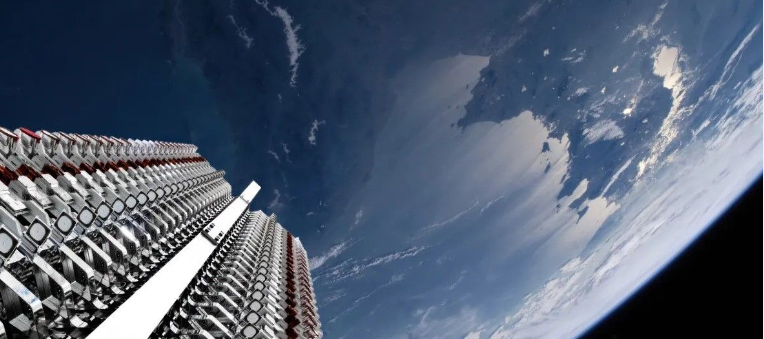
(Photo : Space.com)
- Mukesh Ambani's Reliance has urged India's telecom regulator to scrutinize Elon Musk's Starlink and Amazon's Kuiper before granting satellite spectrum.
- Reliance has advocated for an auction-based approach for spectrum allocation, while Musk favors an administrative allocation.
- Starlink is seeking security clearance for a license to offer satellite broadband services in India, causing unease among local telecom players.
- The current situation represents a new chapter in the convergence of the tech and telecom industries, likely to reshape the global telecom landscape.
In a recent development that has sent ripples through the telecom industry, Mukesh Ambani's Reliance has urged India's telecom regulator to scrutinize the potential reach of Elon Musk's Starlink and Amazon's Kuiper before granting satellite spectrum. This move comes amid concerns that local players could be adversely affected, as revealed in a letter on November 15.
The letter, which has not been made public, represents Ambani's final attempt to influence the ongoing dispute with Musk over the allocation of spectrum for satellite services in India. Reliance has advocated for an auction-based approach, while Musk, in line with global trends, has favored an administrative allocation. This disagreement has seen India siding with Musk's approach.
Reliance, after investing approximately $23 billion in spectrum auctions over the years, currently handles about 15 billion gigabytes of data every month in India. However, the company has expressed concerns that Starlink could target the same customer base with a potential capacity of nearly 18 billion gigabytes of data via its satellites, likely at a significantly lower cost.
The Auction vs Administrative Allocation Debate
Industry experts have noted that auctions often result in higher initial investments, which could deter foreign players and favor companies like Reliance. The letter from Reliance urged the authority to critically examine the capacities created by these mega constellations such as Starlink and Kuiper.
A senior government source at the telecom regulator has assured that all feedback received will be reviewed before making final recommendations, which are expected to be released tentatively before the end of the year.
Starlink is currently seeking security clearance for a license to offer satellite broadband services in India. The telecom minister has stated that the permit will be granted if all conditions are satisfied. This development comes as Musk has adopted aggressive tactics similar to those once used by Ambani, who offered data for free on his mobile plans. In Kenya, Musk priced Starlink at $10 per month, compared to $120 in the United States, causing unease among local telecom players.
The Battle for Market Dominance
Ambani, Asia's richest man, boasts more than 479 million Indian telecom users, making Reliance Jio the number one player in the market. In contrast, Musk's Starlink, a unit of SpaceX, has 6,400 active satellites orbiting Earth, providing low-latency broadband to four million customers.
The question of whether Musk will be able to compete with Jio and Airtel on pricing remains unanswered. India currently has the world's lowest pricing in terms of broadband and WiFi internet. Musk, currently the world's richest person, may aim to compete aggressively in the world's most vibrant internet data market.
In a related development, Dish Network announced a partnership with Amazon.com to sell postpaid wireless plans through the e-commerce platform in the United States. This partnership, which could potentially pressure telecom prices in the United States, is seen as a strategic move by Amazon to draw more customers to its Prime service at a time when growth in key markets, including the United States, has plateaued.









